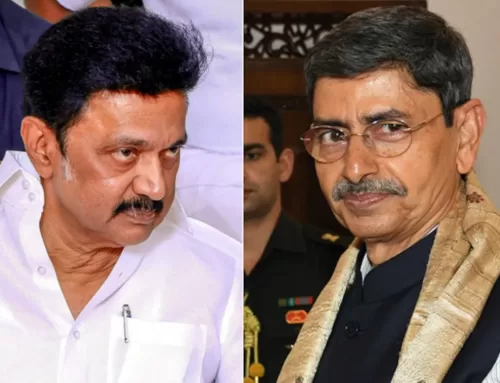– Abul Kalam Azad Sulthan, Advocate, High Court of Judicature at Madras and Madurai Bench of Madras High Court & Partner, Spicy Law Firm.
There’s a growing recognition of how bilateral treaties play a crucial role in shaping India’s international relations. These agreements not only foster economic cooperation and diplomatic ties but also serve as a means of addressing geopolitical challenges. As you explore this topic, you’ll discover how India’s strategic partnerships with countries around the world influence its positioning on global issues, impacting both national security and international trade. Understanding these treaties is vital for grasping the complexities of India’s role on the international stage.
Historical Background of Bilateral Treaties
Early Beginnings
To understand the significance of bilateral treaties in India’s international relations, you must first investigate into the early beginnings of such agreements. Historically, treaties have served as fundamental tools for fostering diplomatic relations between nations. In ancient times, India engaged in various forms of treaties, primarily driven by trade and conflict resolution. Notable examples include the alliances formed during the Mauryan Empire, wherein neighboring kingdoms established pacts to ensure peace and mutual economic support. These early treaties were not merely formalities; they laid the groundwork for diplomatic engagement that would resonate through the ages.
To further grasp the importance of these early collaborations, consider the fact that the prevailing geopolitical climate demanded a sophisticated understanding of strategy and communication. As various kingdoms rose and fell across the Indian subcontinent, the need for treaties became increasingly apparent. You can observe that these early agreements helped maintain stability and encouraged prosperity. Moreover, they allowed for the exchange of not only resources but also culture, which enriched the societal landscapes of both parties involved.
To highlight the transformative impact that these treaties had on Indian society, it is vital to recognize the inherent power dynamics at play. Treaties were often signed out of necessity, where the realities of warfare left little room for hostility. As you study this historical context, you will see that the early treaties established norms that would guide future interactions between states. They underscored the notion that collaboration, forges through treaties, could often yield better outcomes than conflict.
Evolution of Treaty-Making
Background exploration reveals that the evolution of treaty-making in India has been a gradual yet significant process. As global politics evolved, so too did the practices surrounding treaties. During colonial times, India’s treaty-making practices underwent a profound transformation. European powers, particularly the British, imposed their own treaty frameworks that often sidelined indigenous practices. This colonial imposition highlighted the need for India to navigate a complex landscape of external influences while simultaneously striving to preserve its sovereign rights.
Another crucial aspect of the evolution of treaty-making in India is the transition from colonial subjugation to independence. You might consider that following 1947, India emerged as a sovereign nation eager to redefine its role on the global stage. Our understanding of treaties during this era shifted towards multilateral cooperation and global advocacy. The establishment of the Non-Aligned Movement exemplified India’s commitment to forging bilateral treaties that emphasized mutual respect and non-interference. This movement not only fostered connections with nations in similar predicaments but laid a strong foundation for future treaty negotiations.
Another notable aspect of this evolution is the increasing awareness and implementation of international law within the scope of treaty-making. In response to and in the spirit of globalization, India has adapted its treaty-making processes to address contemporary issues such as environmental protection, human rights, and trade regulations. This iterative process reflects India’s desire to participate actively in the global community while respecting the legal frameworks that underpin international relations. As you examine these dynamics, it becomes clear that understanding the historical background of bilateral treaties is indispensable for comprehending India’s current diplomatic strategies and its approach to fostering international partnerships.
India’s Approach to Bilateral Treaties
Principles Guiding India’s Foreign Policy
Treaties and agreements form the bedrock of India’s foreign policy, which is guided by certain core principles that you should be aware of. India’s commitment to sovereignty and territorial integrity remains paramount in all international engagements. As a nation with a long history of colonization, India emphasizes a non-aligned policy that seeks to maintain autonomy in international relations, avoiding any one-sided allegiance to global power blocs. This guiding principle reflects your nation’s aspiration to project an image of independence and balance on the world stage.
Moreover, the Indian government actively adheres to the principles of mutual respect and non-interference in the internal affairs of other countries. This principle was deeply embedded in India’s foreign policy during the post-colonial period and continues to shape its bilateral treaties. By fostering goodwill and understanding among nations, India aims to create a conducive environment for cooperation in various fields, including trade, defense, and culture. For you, this means that India’s diplomatic efforts are often characterized by practicality, as it seeks to align itself with countries that share similar values and priorities.
Another guiding principle is the idea of sustainable development and global welfare. Your country recognizes that economic growth should not be at the expense of ecological balance or social justice. Therefore, treaties related to trade, environment, and technology exchange are framed to reflect India’s commitments to both domestic prosperity and international collaboration for sustainable solutions. This holistic approach positions India as a responsible global player, committed to addressing pressing global challenges while advancing its own interests.
Strategic Partnerships and Regional Alliances
Indias strategic approach to bilateral treaties often involves forging strong partnerships and alliances that enhance its geopolitical standing and security. By establishing strategic partnerships, India works towards deepening collaborations with countries that serve its national interests, whether through defense agreements, technological exchanges, or economic cooperation. Such partnerships not only bolster India’s defense capabilities but also contribute to the stability and security of the broader region. For you, this signifies India’s proactive stance in countering regional threats while promoting shared values, such as democracy and pluralism.
Furthermore, regional alliances play a crucial role in India’s foreign policy landscape. Initiatives like the Act East Policy and Neighborhood First Policy signify India’s commitment to strengthening ties with its immediate neighbors and Southeast Asian countries. These policies aim to foster deeper economic integration, cultural exchanges, and shared security arrangements that are mutually beneficial. By engaging in the promotion of regional stability and prosperity, India positions itself as a responsible leader in regional affairs. This engagement encourages you to understand the multifaceted nature of India’s diplomatic efforts and the importance of collaboration in your backyard.
This active pursuit of strategic partnerships and regional alliances is not without its challenges. India faces complex geopolitical dynamics, including tensions with neighboring countries and the involvement of larger global powers in its sphere of influence. However, the commitment to diplomacy and the establishment of treaties allows India to navigate these challenges effectively while maintaining its foreign policy objectives. For you, recognizing these nuances in how India shapes its bilateral treaties underscores the significance of a well-crafted approach to international relations in an ever-evolving global landscape.
Economic Benefits of Bilateral Treaties
Now, you might wonder how bilateral treaties can influence economic prosperity. One of the prominent ways is through trade agreements and investment promotion. For countries like India, these treaties create a foundation for more vigorous bilateral trade, paving the way for a significant flow of goods and services. When India signs a trade agreement with another country, it typically reduces tariffs and fosters an environment conducive to easier market access. This not only enables Indian businesses to penetrate foreign markets more effectively but also invites foreign companies to establish a presence in India, leading to mutual benefits for both parties. The accessibility of local markets creates opportunities for innovation and competition, which can potentially lead to reduced prices and enhanced product quality for consumers.
For your understanding, bilateral treaties often come with provisions that encourage foreign direct investment (FDI). When a treaty assures investors of clear regulations and reduced risks, businesses feel more inclined to invest in new markets. In India’s case, treaties with nations such as the United States, Japan, and Australia have spurred significant investment inflows, empowering various sectors from technology to infrastructure. More investment translates into more jobs, enhancing the standard of living for citizens. Importantly, these treaties may also facilitate knowledge transfer and the sharing of best practices, which can play a crucial role in bolstering domestic industries.
For those of you keen on economics, bear in mind that the repercussions of these agreements extend beyond mere trade figures. As India collaborates with other nations through bilateral treaties, it can leverage economic diplomacy to not only enhance its trade volume but to reinforce its political relationships as well. A stable trading environment fosters partnerships that transcend economics, encompassing cultural exchanges and security cooperation. Thus, the comprehensive benefits of trade agreements and investment promotion established through bilateral treaties should not be underestimated.
Boosting Economic Growth and Development
The mechanism of bilateral treaties can serve as a catalyst for boosting economic growth and development. When India engages with nations to form these treaties, it imperatively crafts an ecosystem that not only enhances trade but also supports infrastructure development and technology advancement. The influx of foreign investments significantly contributes to your nation’s GDP growth, thereby uplifting living standards and reducing poverty levels. This economic evolution arises as a result of diversified sectors gaining prominence; strong ties with other nations allow India to explore into sectors previously outside its core competencies, further broadening economic horizons.
The impact becomes even more pronounced when you consider that these treaties can lead to job creation in a multitude of sectors. Improved infrastructure – from transportation to communication – results from continued investment, making it easier for businesses to thrive and employees to find opportunities. Moreover, as international companies enter the Indian market, they often bring new skills and training initiatives that enhance the capabilities of your workforce. Over time, this translates into a workforce that is not only more skilled but also able to sustain innovative approaches to both traditional and modern industries.
Development in this context sharply illustrates the importance of targeted investments that bilateral treaties encourage. As your country harnesses foreign expertise and technologies, there is a remarkable potential for local industries to progress. Bilateral agreements may include stipulations that necessitate local sourcing or employment, which further builds the domestic economy. With the right agreements in place, India’s growth story can propel it into a leading position in the global economy, showcasing the potential for other nations to follow suit in establishing mutually beneficial partnerships.
Security Implications of Bilateral Treaties
Keep in mind that bilateral treaties are pivotal in shaping the security landscape of a nation. For India, these agreements with various countries serve as instruments for enhancing defense cooperation, military aid, and securing peace against shared threats. These treaties enable India to strengthen its strategic capabilities while fostering relations with its allies. In this chapter, we will explore the different facets of how bilateral treaties play a fundamental role in India’s security strategy.
Defense Cooperation and Military Aid
Cooperation between India and its allies through bilateral treaties has significantly enhanced defense capabilities. Such agreements often outline frameworks for joint military exercises, intelligence sharing, and interoperability of forces. By engaging in these activities, you allow your military personnel to familiarize themselves with better tactics and systems used by other nations, thus improving operational effectiveness during real-world deployments. The transfer of military technology and equipment often forms a crucial aspect of these treaties, providing advanced resources that could not be developed domestically due to various constraints.
Furthermore, military aid provided through these bilateral agreements can make a substantial impact on India’s defense posture. Such aid may come in the form of financial support for weapons acquisition, training for personnel, or sharing of critical knowledge in defense strategies. This aid fortifies India’s military readiness and enhances its ability to respond promptly to emerging security threats. As you witness global instability, the role of military aid in achieving long-term security objectives cannot be understated, ensuring that your nation remains prepared for a range of potential scenarios.
In essence, defense cooperation and military aid provided through bilateral treaties not only bolster India’s defense capabilities but also solidify alliances with nations sharing common security interests. This has far-reaching implications for regional stability and is crucial in establishing a unified front against common adversaries. The relationships formed through such treaties can often mitigate tensions and foster unity in addressing global security challenges, which can subsequently lead to more stable and secure environments for your nation and its allies.
Countering Terrorism and Non-Proliferation
Countering terrorism and ensuring non-proliferation are two of the most pressing security issues that bilateral treaties aim to address. In an era where terrorism transcends borders, collaborative efforts among nations have become imperative. By entering into treaties focused on intelligence sharing and counter-terrorism financing, you empower your government to act more effectively against militant threats. Joint task forces and information exchange mechanisms can result in the timely interception of potential plots and the dismantling of terror networks that could compromise national security.
The non-proliferation of weapons of mass destruction is another critical aspect of international security that is often addressed through bilateral treaties. Countries, including India, engage in agreements to prevent the spread of nuclear weapons and other dangerous materials. As a participant in these treaties, you contribute to a global endeavor aimed at safeguarding humanity from the catastrophic possibilities that arise when such weapons fall into the wrong hands. Bilateral efforts in this domain often involve stringent verification mechanisms and collaborative monitoring, ensuring compliance while enhancing overall security.
For instance, through bilateral treaties focused on counter-terrorism and non-proliferation, countries can share critical intelligence that identifies and neutralizes threats before they escalate. This may involve joint operations aimed at tracking and apprehending terrorists or the development of plans to counteract the proliferation of nuclear materials. With countries uniting against common threats, your nation collectively works towards a more secure world, which ultimately benefits you and your community by fostering an environment free from fear and violence.
Cultural Exchange and People-to-People Diplomacy
Unlike what many people may think, cultural exchange is a powerful tool that has a profound impact on international relations. When two nations engage in cultural diplomacy, they lay the groundwork for mutual understanding, respect, and collaboration. Among these nations, India has recognized the significant role that educational cooperation plays in forging strong diplomatic ties. Through initiatives such as student exchange programs, joint research ventures, and collaborative academic projects, India exhibits its commitment to fostering a global learning community that transcends geographical boundaries and cultural differences.
Educational and Cultural Cooperation
Cooperation in the field of education between India and its bilateral partners opens up numerous avenues for cultural understanding and enrichment. By facilitating access to higher education and vocational training, you enable students from various countries to experience India’s rich heritage and diverse socio-cultural fabric firsthand. This exposure not only enhances their academic pursuits but also promotes lasting friendships and bonds that extend beyond the classroom. When you create educational partnerships, you contribute to a deeper appreciation of each other’s cultures and values, which ultimately plays a crucial role in building a more harmonious and interconnected world.
Furthermore, universities and academic institutions in India have been proactive in fostering intercultural dialogue. Through various programs, conferences, and cultural festivals, you find opportunities for students to engage in discussions about global issues, empowering them to dissect and challenge stereotype perceptions. This engagement cultivates critical thinkers who are more inclusive and adaptive to cultural diversity, bringing in their unique perspectives. When your education system embraces cultural exchange, it elevates the quality of education itself, ensuring that future leaders are more globally aware and culturally sensitive.
Lastly, educational institutions also act as hubs for the exchange of ideas and innovations. Collaborating on research projects that address common challenges facilitates not only knowledge-sharing but also strengthens professional ties among the countries involved. You can see how, through educational initiatives, India positions itself as a knowledge leader on the global stage while forming alliances that yield social and economic benefits for all parties concerned. This kind of cultural diplomacy elevates India’s influence and contributes to a more stable international climate.
Promoting Tourism and Cultural Heritage
To effectively promote tourism and highlight the unique cultural heritage of India, bilateral treaties often include provisions that encourage collaborative marketing and tourism initiatives. By leveraging shared interests in tourism, you can create a strong foundation for inviting travelers and stimulating economic growth. As countries exchange expertise on promoting destinations, you witness the globalization of cultural experiences that bring diverse populations together. This interaction allows you to immerse yourself in vibrant traditions, culinary delights, and historical narratives that are emblematic of both your culture and those of your partners.
Moreover, when India engages in tourism-related diplomacy, it emphasizes sustainable practices that honor both the environment and local communities. This not only protects the cultural heritage but also fosters responsible tourism, ensuring that you, as a traveler, have a meaningful and enriching experience. The benefits extend beyond economic gain; they also nurture a sense of appreciation and respect for the cultural nuances that make each destination unique. Strong partnerships can lead to innovative strategies for eco-tourism and cultural preservation, creating a win-win situation where both India and its partners thrive.
A successful promotion of tourism through cultural heritage leads to the growth of programs that encapsulate the essence of diverse backgrounds. Festivals, art exhibitions, culinary tours, and workshops can emerge from these collaborations, offering you immersive experiences that deepen your understanding of different cultures. By participating in such endeavors, you support the preservation of traditions and contribute to the broader narrative of cultural exchange, fostering goodwill and cooperation that transcend national borders. The positive impact of this cultural diplomacy is undeniable, as it creates a platform for dialogue, understanding, and shared human experiences.
Challenges and Limitations of Bilateral Treaties
Once again, as you research into the complexities of bilateral treaties, it’s vital to recognize the intricate dance between national interests and sovereignty. These legal agreements often emerge from the necessity to foster cooperation but are frequently challenged by the competing priorities of each signatory state. You may find that while a treaty aims to promote trade or mutual defense, the implications of such commitments can at times infringe upon a nation’s autonomy. This duality raises significant questions about how you can balance the desire for international collaboration with your inherent right to govern independently. The paradox lies in the fact that, although treaties are meant to enhance economic and political stability, they can also lead to an uncomfortable compromise of your state’s sovereignty.
Any sovereign state is expected to protect its national interests above all else, yet the obligations set forth in a bilateral treaty may require concessions that appear contrary to those interests. You may hold a mutual understanding with another country aimed at enhancing security or economic growth, but when national interests shift—such as in cases of political upheaval or economic crises—your government faces the perilous task of reconciling these newer realities with the pre-existing treaty obligations. This dynamic can lead to tension and dissatisfaction, complicating the relationship between nations. The delicate interplay of interests often finds you in a precarious position, where any deviation from treaty obligations might engender diplomatic fallout.
Ultimately, you must navigate these waters carefully, recognizing that while bilateral treaties offer numerous benefits, they can also undermine the flexibility needed to respond to changing geopolitical landscapes. The necessity of sovereign compliance versus shared commitments can plunge even seasoned diplomats into a quagmire, raising concerns about potential violations and backlash. The enduring challenge remains to strike that all-important balance between benefiting from cooperative agreements while safeguarding the foundational principles of your national identity and governance. All of these factors contribute to the complex interplay that defines bilateral relations.
Addressing Disputes and Conflicts
Conflicts arising from bilateral treaties are not just common; they can be exceedingly damaging if left unaddressed. You might consider that any agreement, regardless of its merits, is susceptible to interpretation and disagreement. Disputes may occur over various factors such as compliance, interpretation of terms, or even unforeseen circumstances—like changes in government or public pressure—that can impede the agreed-upon terms. Often, these conflicts can become contentious, leading to a broader deterioration of relations between the nations involved, thus complicating efforts at resolution. As you reflect on your country’s treaties, consider the importance of building frameworks for dispute resolution to efficiently manage these issues before they spiral out of control.
National interests play a crucial role when these disputes emerge. The stakes are high, and the desire to maintain balance while advocating for your state’s interests can become an overwhelming pressure, particularly when the partner nation has conflicting aims. You should keep in mind that failure to address these disputes effectively could lead to escalating tensions, economic sanctions, or even the dissolution of the treaty altogether. The importance of timely communication, negotiation, and conflict resolution mechanisms cannot be overstated, as they serve as the backbone for maintaining the integrity of the bilateral relationship.
National frameworks for dispute resolution tend to vary greatly from country to country, which only adds another layer of complexity to the process of addressing conflicts. While some nations may favor diplomatic solutions and dialogue, others might resort to more aggressive or legalistic approaches. This variability presents a unique challenge for you as you navigate these treaties. Seeking to establish clear methodologies for resolving disputes not only enhances mutual trust but also helps forestall potential crises that could destabilize relations. Using these frameworks wisely ensures that the benefits of bilateral treaties can endure amidst challenges and limitations.
Final Words
From above, it becomes increasingly clear that bilateral treaties play a vital role in shaping the international relations of India. As you examine into this intricate web of agreements, the importance of diplomacy emerges, often manifested in trade, security, and cultural exchange. These treaties allow you to witness the active pursuit of India’s national interests while fostering mutual understanding and cooperation with other nations. Whether strengthening ties with neighboring countries or engaging in more distant partnerships, India’s strategic approach underscores a commitment to balancing domestic aspirations with global responsibilities. You should appreciate how these relationships not only contribute to economic growth but also enhance India’s geopolitical standing.
Moreover, the scope and diversity of bilateral treaties reflect India’s adaptive strategies in an ever-changing world. In your exploration of various agreements, you recognize that India consistently seeks to tailor partnerships based on shared values, prevalent challenges, and specific regional dynamics. This adaptability is crucial, as it allows India to respond effectively to emerging threats and opportunities. As you engage with different facets of these treaties, you begin to understand the need for agility in India’s foreign policy, especially in a landscape marked by shifting alliances and the rise of new powers. The significance of bilateral treaties becomes apparent in their capacity to create stable and secure environments, which are crucial for sustainable development.
Ultimately, as you contemplate the future of India’s international relations, it becomes evident that bilateral treaties are not mere formalities but are instead foundational to constructing a resilient and progressive foreign policy. You must recognize that these agreements are the threads weaving together the fabric of India’s global strategy. They empower India to navigate complex geopolitical waters and assert its influence while contributing to global stability. As you reflect on the significance of these treaties, you are invited to consider your own role in this dynamic interplay. Whether as a citizen, a policymaker, or an observer, your understanding of bilateral treaties will contribute to a more nuanced comprehension of India’s position in the world stage, ultimately underscoring the critical nature of diplomacy in fostering international cooperation.







Leave A Comment